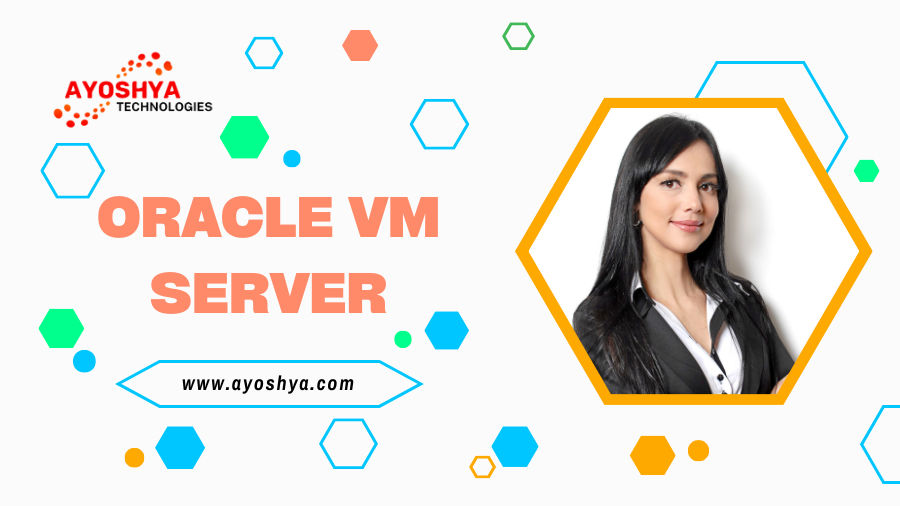Oracle VM Server: Revolutionizing Virtualization for Optimal Performance
In the ever-evolving landscape of enterprise IT, virtualization has become a cornerstone for optimizing resources, improving efficiency, and enhancing overall performance. At the forefront of virtualization solutions stands Oracle VM Server, a powerful platform designed to meet the diverse needs of modern businesses.
Introduction
As businesses grapple with the demands of scalability, flexibility, and cost-effectiveness, Oracle VM Server emerges as a robust solution. This article delves into the intricacies of Oracle VM Server, exploring its core components, benefits, real-world applications, and the role it plays in transforming the virtualization landscape.
Understanding Oracle VM Server
Oracle VM Server is a virtualization solution that allows businesses to run multiple operating systems on a single physical server. Unlike traditional virtualization solutions, Oracle VM Server offers a comprehensive platform that extends beyond mere consolidation, providing a dynamic and efficient environment for running diverse workloads.
Key Components
- Hypervisor: At the heart of Oracle VM Server is its hypervisor, responsible for managing and allocating resources to virtual machines.
- Management Console: An intuitive console that facilitates the configuration, monitoring, and management of virtualized environments.
- Template-Based Deployment: It leverages templates for rapid and consistent deployment of virtual machines.
Benefits for Businesses
The adoption of VM Server translates into a myriad of benefits for businesses:
- Resource Optimization: Efficiently allocate and utilize server resources, maximizing performance.
- Cost Savings: Consolidate workloads on a single server, reducing the need for multiple physical machines.
- Flexibility: Easily scale resources up or down based on changing business requirements.
Real-world Applications
VM Server finds application across various industries, including finance, healthcare, and manufacturing. Its versatility enables businesses to create tailored virtualized environments that meet specific industry needs, from ensuring data security to enhancing application performance.
Integration Capabilities
Seamless integration is a hallmark of VM Server. Its compatibility with existing systems allows businesses to leverage their current infrastructure, avoiding the need for a complete overhaul during implementation.
Scalability and Flexibility
Adaptability is a key strength of VM Server. Businesses can scale their virtualized environments to accommodate growing workloads, ensuring that the platform remains aligned with organizational growth.
Oracle VM Server vs. Competitors
A comparative analysis reveals Oracle VM Server’s strengths in terms of performance, scalability, and a robust suite of management tools. These features set it apart from competitors, making it a preferred choice for businesses seeking a comprehensive virtualization solution.
Implementation Best Practices
Implementing VM Server requires a strategic approach. This section provides a step-by-step guide, outlining best practices to ensure a smooth integration process and optimal performance.
Security Measures
In an era where data security is paramount, VM Server prioritizes robust security measures. From isolation of virtual machines to access controls, the platform ensures the integrity and confidentiality of sensitive data.
User Experience and Interface
Oracle VM Server’s user interface is designed for simplicity and efficiency. The management console offers an intuitive experience, allowing administrators to configure and monitor virtualized environments with ease.
Customization Options
Recognizing that each business has unique requirements, VM Server provides extensive customization options. Tailor the virtualized environment to meet specific needs, ensuring optimal performance for diverse workloads.
Future Trends and Innovations
The landscape of virtualization is ever-evolving, and VM Server remains at the forefront of innovation. Anticipated trends include enhanced automation, artificial intelligence integration, and further streamlining of management processes.
User Testimonials
Businesses share their experiences with VM Server, highlighting the platform’s impact on resource optimization, cost savings, and overall IT efficiency. Real-world testimonials provide insights into the tangible benefits of adopting VM Server.
Challenges and Solutions
While VM Server brings immense benefits, businesses may face challenges during implementation. This section addresses common challenges and provides effective solutions, ensuring a seamless integration process.
Frequently Asked Questions (FAQs)
- Is Oracle VM Server suitable for small businesses?
- Absolutely. Oracle VM Server’s scalability makes it suitable for businesses of all sizes.
- How does it ensure data security?
- It employs isolation measures and access controls to safeguard data.
- Can Oracle VM Server integrate with existing IT infrastructure?
- Yes, It is designed for seamless integration with a wide range of existing systems.
- What sets VM Server apart from other virtualization solutions?
- It excels in performance, scalability, and a comprehensive suite of management tools, setting it apart from competitors.
- Is technical expertise required for implementing VM Server?
- While basic technical understanding is beneficial, Oracle VM Server’s user-friendly interface makes it accessible to users with varying technical backgrounds.
Conclusion
In conclusion, Oracle VM Server emerges as a game-changer in the virtualization landscape, providing businesses with the tools they need to optimize resources, enhance performance, and navigate the complexities of modern IT environments. As the digital era continues to unfold, VM Server stands as a reliable partner for businesses seeking efficiency and agility in their virtualized operations.
You may be interested in:
Oracle Consulting: the Power of Digital Transformation
SAP Vs Oracle: Which Is The Best ERP Program
SAP vs. Competitors: Which ERP Solution Is Right for Your Business?



